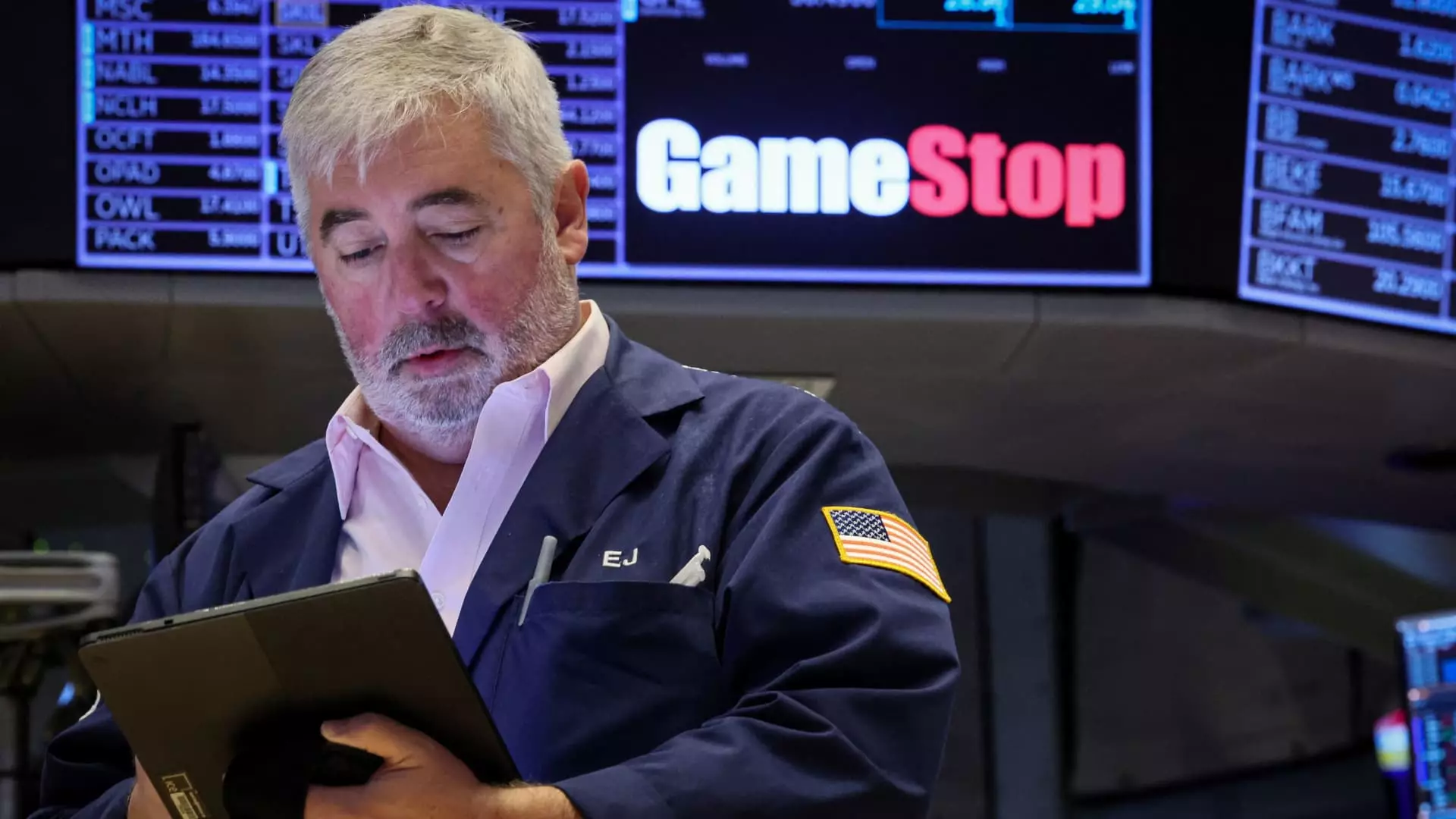GameStop, once the poster child of meme stock mania, recently experienced a significant reversal in its fortunes. After a hopeful rally that saw its shares increase nearly 12%, the video game retailer plummeted by more than 13%, casting doubt on its ambitious plans to invest in Bitcoin using debt financing. The strategy to raise an eyebrow-raising $1.3 billion through the sale of convertible senior notes due in 2030 comes as a bold, albeit reckless, move for the company. While some investors may see this as innovation, a deeper analysis reveals a desperation to maintain relevance in an increasingly competitive market.
Copying a Playbook: Is Imitation the Sweetest Form of Failure?
GameStop’s decision to follow in the footsteps of MicroStrategy—a company noted for its aggressive acquisition of Bitcoin—seems less like a game plan and more like a panic-stricken imitation. The GameStop board’s unanimous approval of this crypto venture indicates a lack of original strategy; rather, it shows an organization that is frantically searching for a lifeline in the volatile, often unpredictable world of cryptocurrencies. Unlike MicroStrategy, which boasts a solid business model that justifies its Bitcoin investments, GameStop’s financial foundations are much shakier, leading many analysts, including Wedbush’s Michael Pachter, to express skepticism about the effectiveness of this approach.
The Impending Dilution: Threatening Shareholder Value
Issuing 46 million additional shares to finance this risky pivot introduces immediate concerns regarding shareholder value. GameStop’s valuation, sitting at $12.7 billion—more than double its anticipated cash after the convertible notes—highlights a troubling divergence between its market perception and tangible assets. Pachter’s assertion that the share price may continue to drift downwards before the convertible notes are issued adds to the angst experienced by investors who are now faced with the possibility of dilution. Essentially, customers risk holding shares in a company more inflated than its actual financial positioning can justify, exacerbating potential losses.
Trust and the Meme Phenomenon: A Fraying Rope
There’s a degree of naiveté among investors who place their faith in the ongoing viability of the GameStop meme phenomenon. The initial surge was driven by social media enthusiasm and retail investor zeal, but this momentum may not sustain itself for another five years as required by the convertible investors. With the wave of retail trading cooling off and the community’s enthusiasm turning to skepticism, a major question emerges: has the magic faded? The fragile nature of GameStop’s current strategy threatens to expose it to far graver pitfalls than merely a volatile stock price.
In essence, while some may herald this venture into cryptocurrency as visionary, the reality outlines a company on the verge of a heavy risk—a risk that appears, at best, ill-advised. Investors should proceed with caution, lest they find themselves ensnared in a highly speculative investment that offers little in return for the trust placed in it. GameStop’s recent trajectory serves more as a warning than a beacon of innovation in the uncharted waters of cryptocurrency markets.

